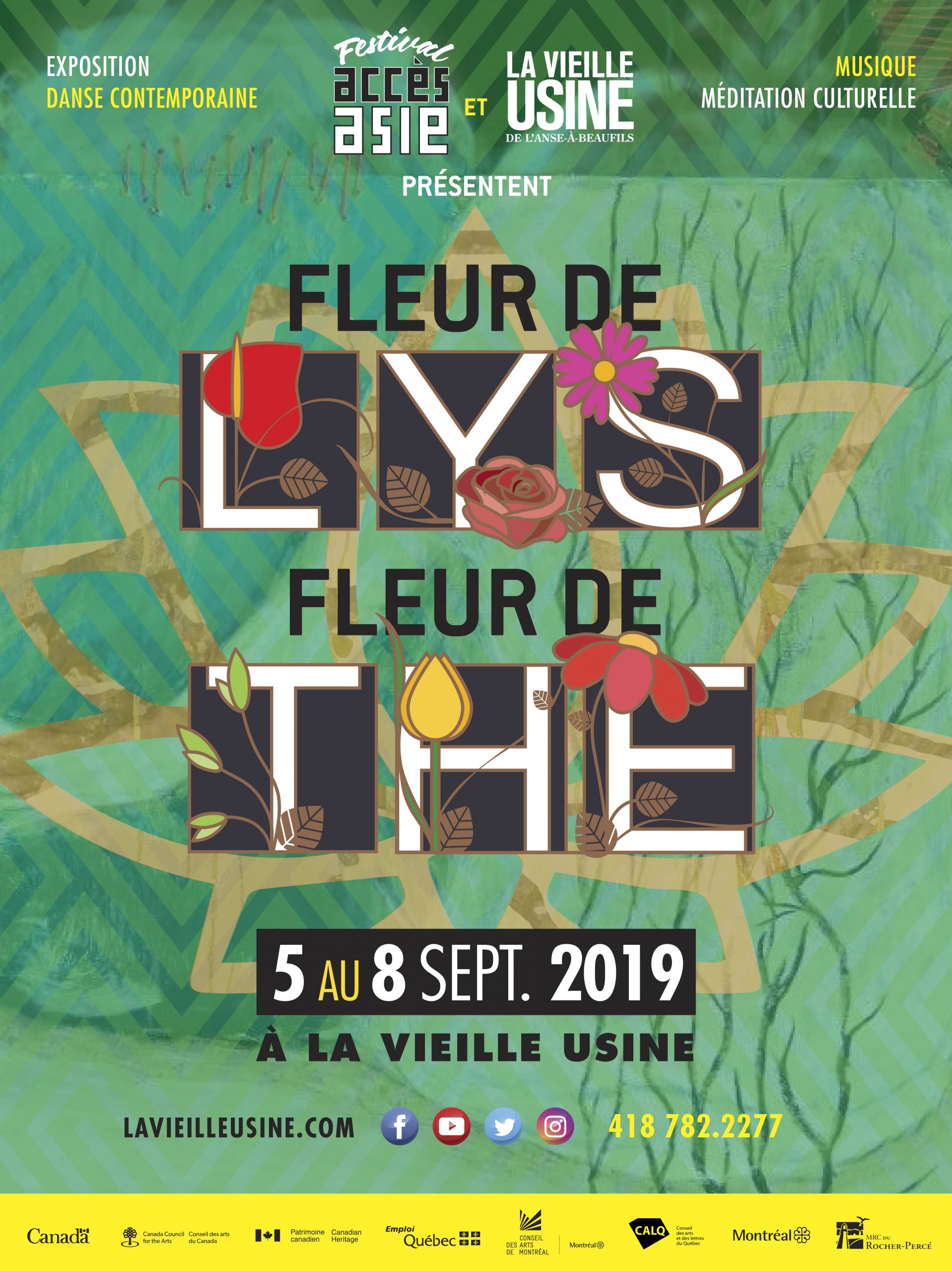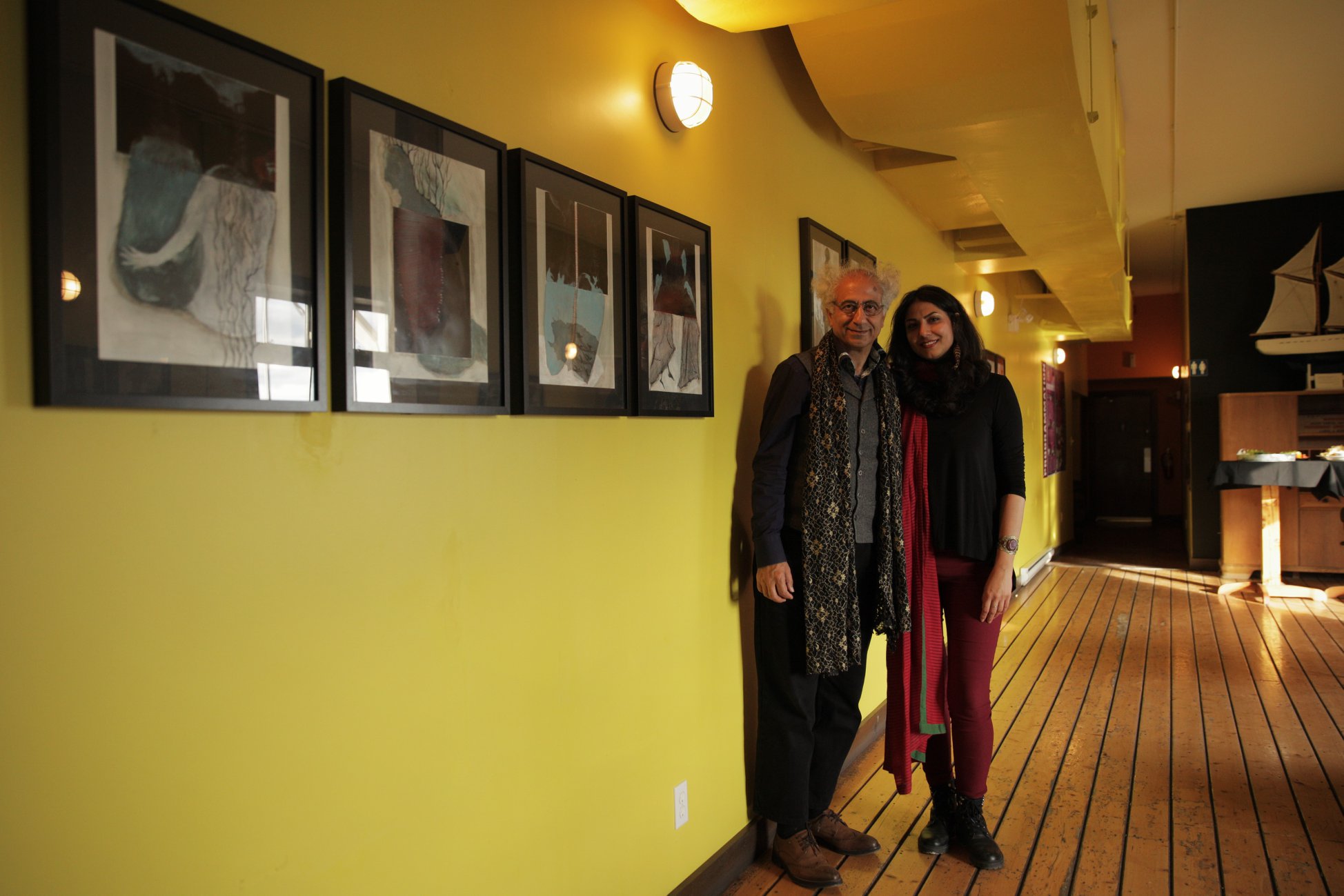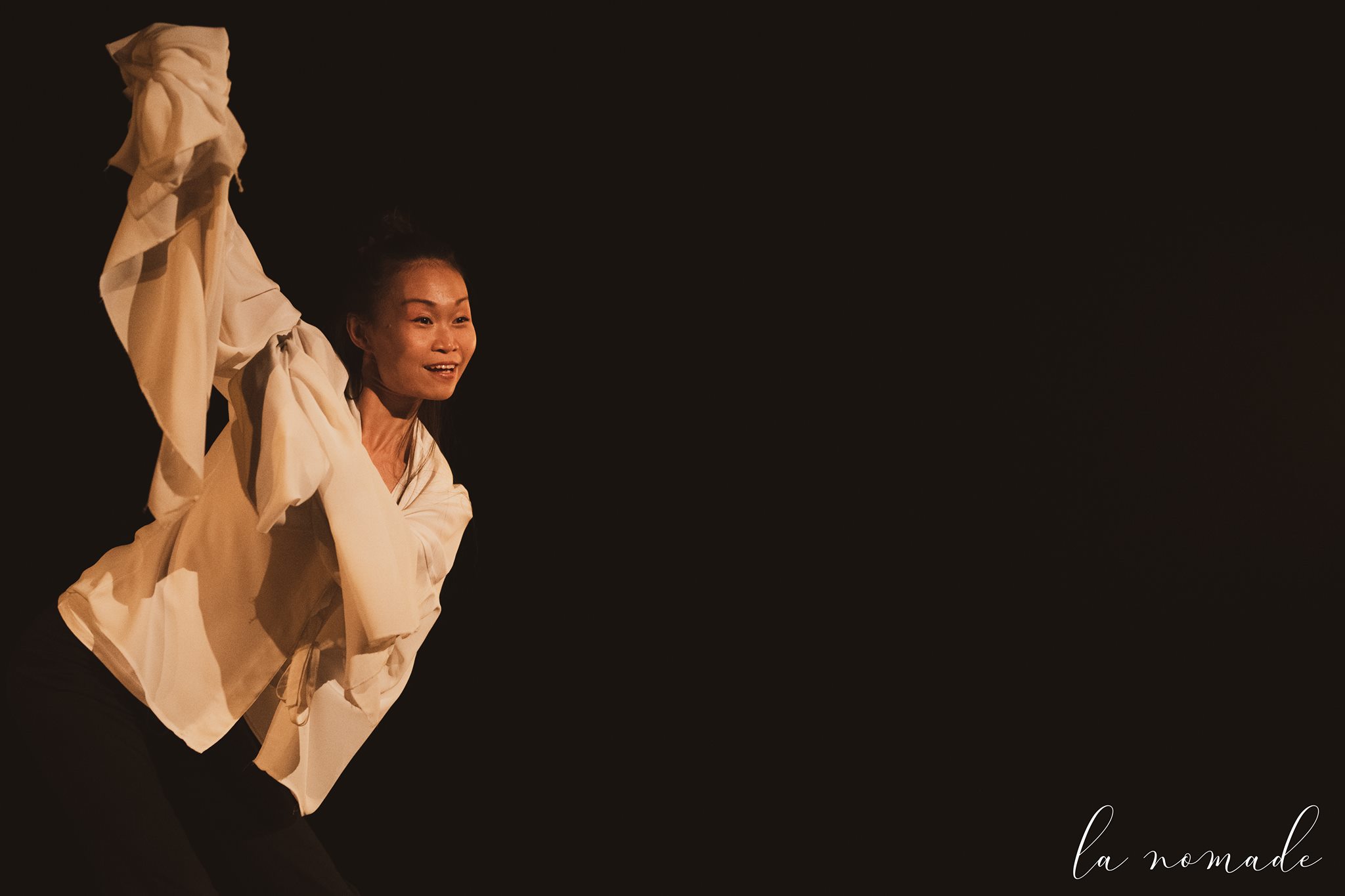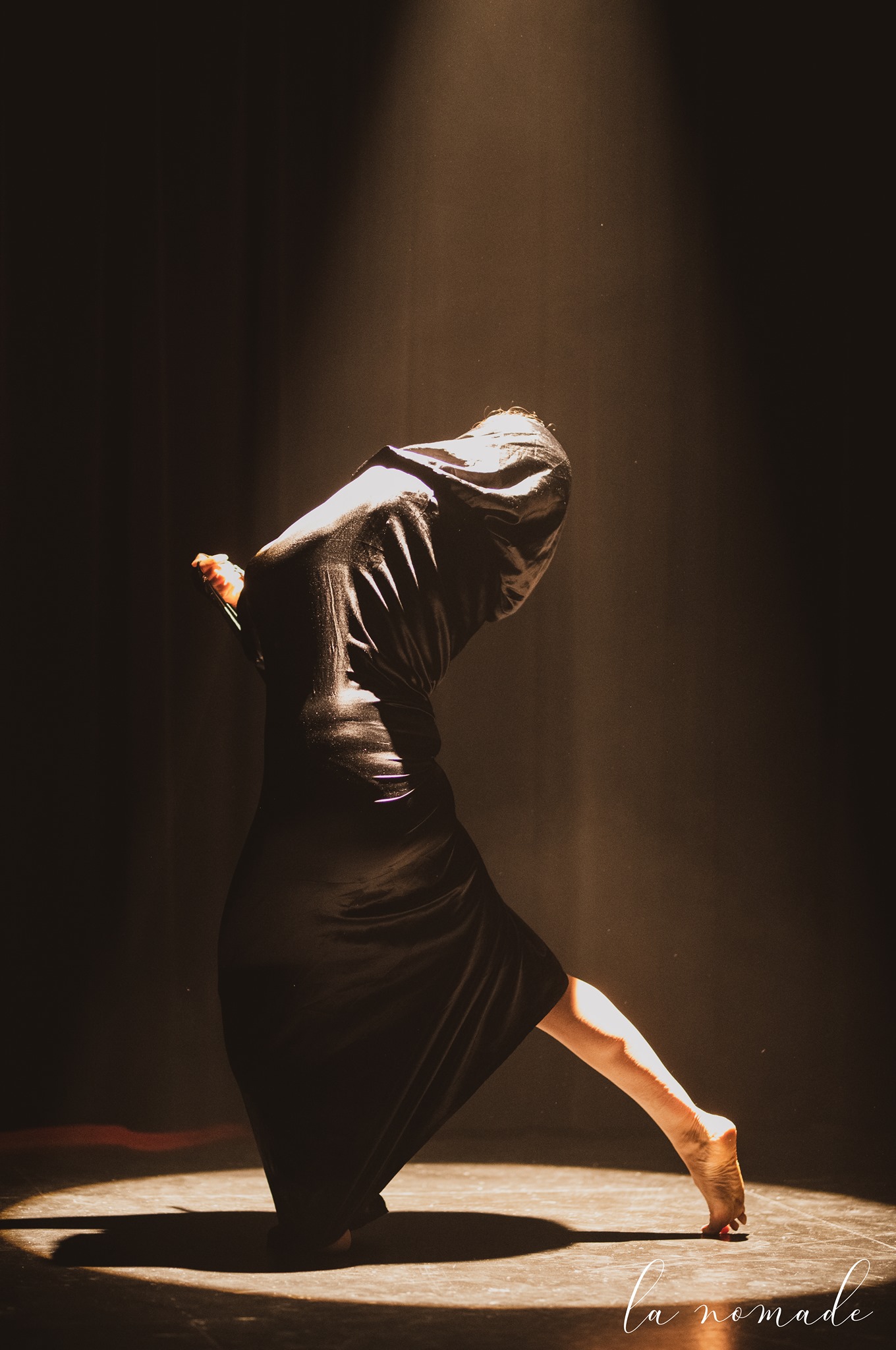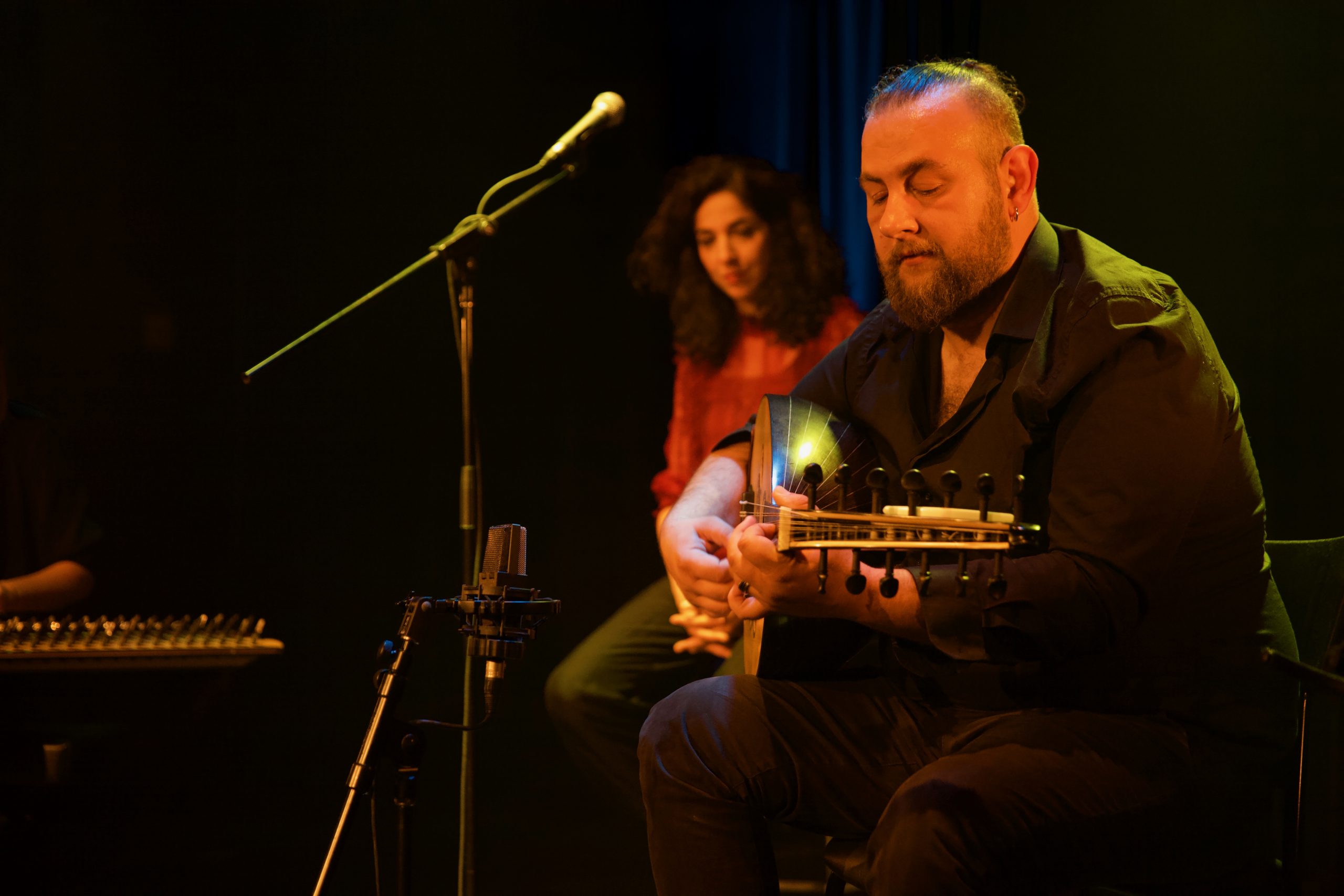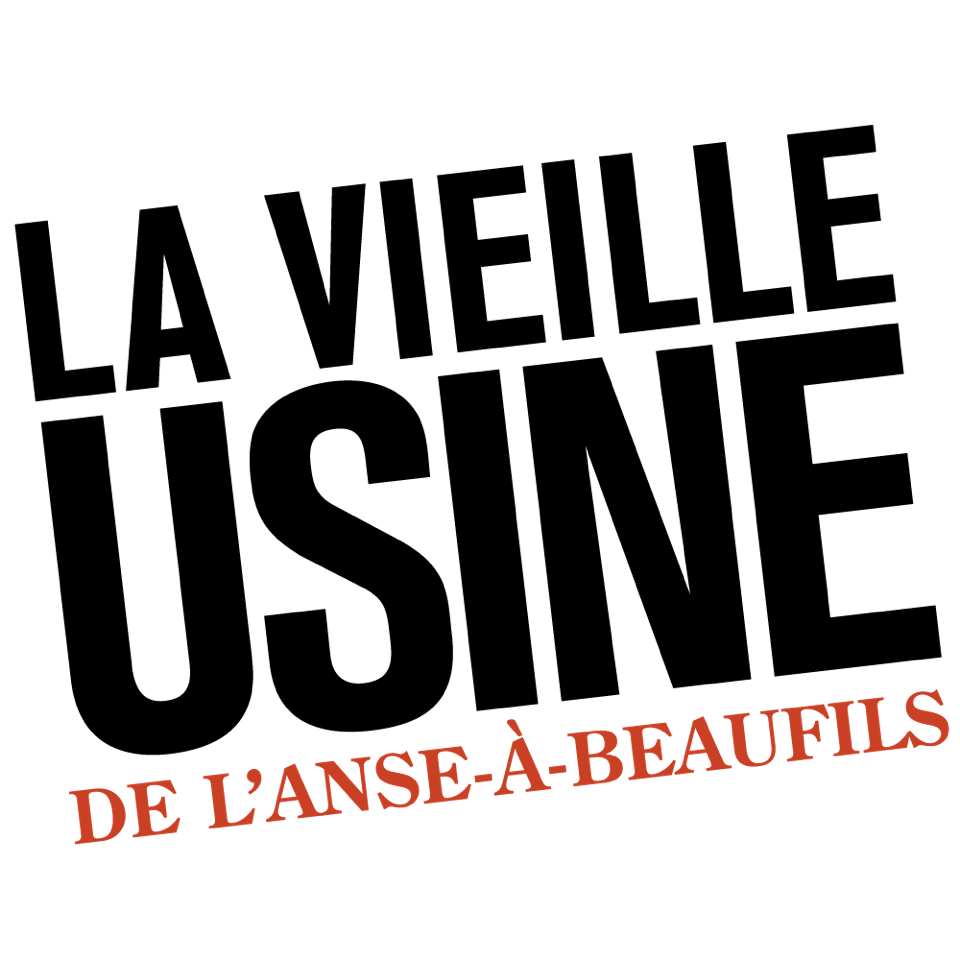Fleur de lys, Fleur de thé – 2019
In collaboration with La Vieille Usine de l’Anse-à-Beaufils
Fleur de lys, Fleur de thé is the name of the provincial component of Festival Accès Asie. The objective is to advance the appreciation and understanding of the arts, cultures, and Asian stories in the regions of Québec. In addition, this component offers an opportunity for artists from the Asian community to present their work outside Montreal.
Description
From September 5th to 8th 2019, Festival Accès Asie was proud to participate in the 10th season of La Vieille Usine, in Gaspésie with four days of program events in visual arts, dance, music, and cultural mediation.
Activities began on September 5 with the opening of Noeuds exhibition by visual artist Parisa Rajabian.
On September 6, a contemporary dance evening was presented. The audience was able to attend three solos: Noirceur solitaire by Geneviève Duong, Jia Ren Qu / The Beauty Song by Charo Foo Tai Wei and Moi-Me-Man by Nasim Lootij.
The third day was dedicated to music with a performance by Ensemble Zaman with Lamia Yared on vocals, Nazih Borish on oud and Didem Başar on qanun.
Finally, September 8 was a cultural mediation activity: meeting and culinary exchange. The artists, the public and La Vieille Usine team gathered around a potluck to share their experience and a collective meal.
Medias
Collaboration
You are in charge of a cultural venue outside of Montreal? You would like to host the Festival Accès Asie program event? Contact Khosro Berahmandi to discuss various artistic and cultural exchange opportunities.
Parisa Rajabian
Born in Iran, Parisa graduated from the Kerman Art University and holds a degree in Painting and New Media. Parisa moved to Montreal in 2015. Inspired by her cultural background, she presents her pieces with a new language using new artistic media, she tries to reduce the boundaries between cultures and cultivates a certain immediacy with her audience. Between 2006 and 2017, Parisa has shown her work in numerous solo and group exhibitions in the United States, Germany, South Korea, Iran, Hungary, and Romania. Her illustrations are featured in the 9th edition (October 2017) of TicArtToc magazine. Parisa has recently started expanding her artistic practice to contemporary dance.
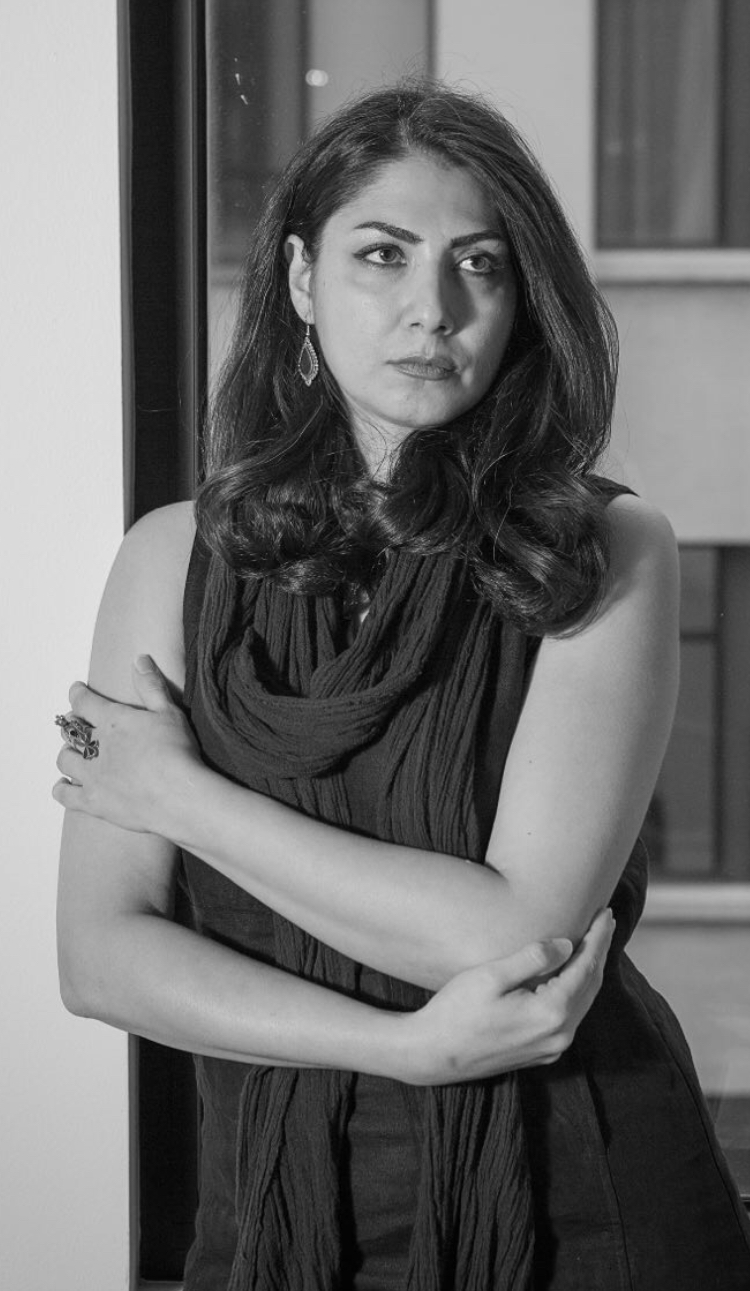
Hanieh Ziaei
Originally from Tehran, Hanieh Ziaei has studied in Brussels (B.A.) and Montreal (M.A. and Ph.D) where she currently resides and works. In her research in art sociology and culture, Hanieh Ziaei looks at the place of artists in Iran’s contemporary society as well as the role of Iranian art in exile. She is interested in the counterbalance of the power of artists and the political and social dimensions of contemporary Iranian art. She writes for many art magazines including Vie des Arts, Séquences and TicArtToc (DAM). She is also a resident researcher at the Observatoire sur le Moyen-Orient et l’Afrique du Nord (OMAN) de la Chaire Raoul-Dandurand at UQÀM and a member of the Cercle des Chercheurs sur le Moyen-Orient (CCMO) in Paris and the Centre d’Études de la Coopération Internationale et de Développement (CECID) of ULB in Brussels.
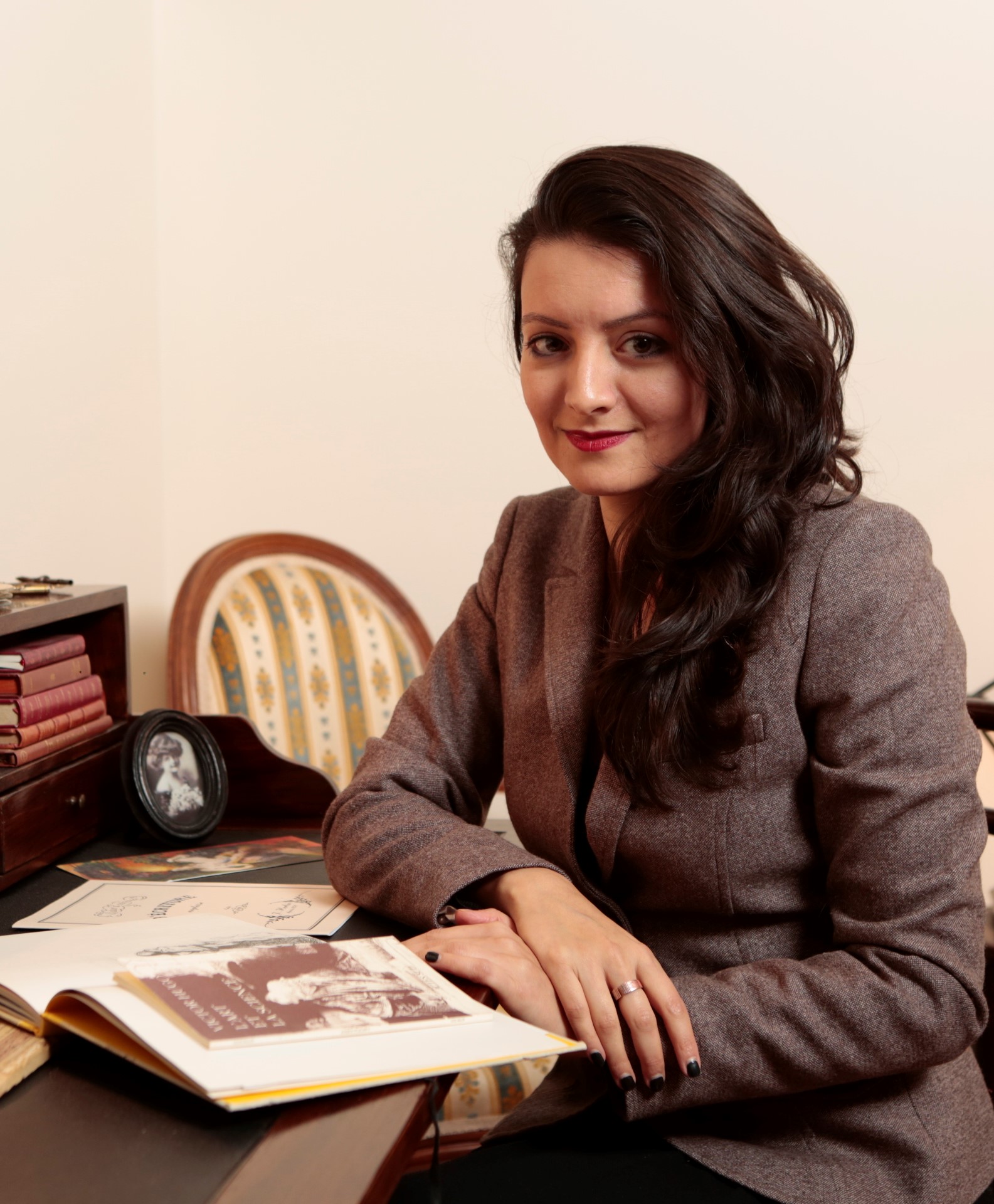
Geneviève Duong
Geneviève Duong trained in nursing at McGill University (2009) but turned to professional dance earning a DEC in Danse Interpretation in contemporary dance at l’École de Danse de Québec (2012), Geneviève is now a performer, choreographer, and teacher in contemporary dance, strongly influenced by a desire for cultural mediation. Driven by a desire to anchor her practice from a scientific standpoint, she signed up for a bachelor in Science historique et étude du patrimoine at Université Laval (2017–). Her creations reflect one of her deep concern, that is to say the development of an invested, conscious and compassionate body language through a multidisciplinary spontaneous composition process. She is administrator at RQD (2015–) and L’Artère (2012–).

Charo Foo Tai Wei
Trained in modern dance and Chinese traditional dance, Charo Foo Tai Wai arrived in Quebec in 2005 where she trained in contemporary dance at l’École Nationale de Danse de Québec. From 2007 to 2013, she performed in Robert Lepage`s production of The Blue Dragon (Ex Machina) as an actress, dancer, and choreographer. In 2015, she discovered butô dance with Natsu Nakajima, Yukio Waguri, Atsushi Takenouchi, Yumiko Yoshioka, and Rizhome Lee. Since 2010, Foo has traveled around the world giving Chinese dance workshops on top of performing in festivals.
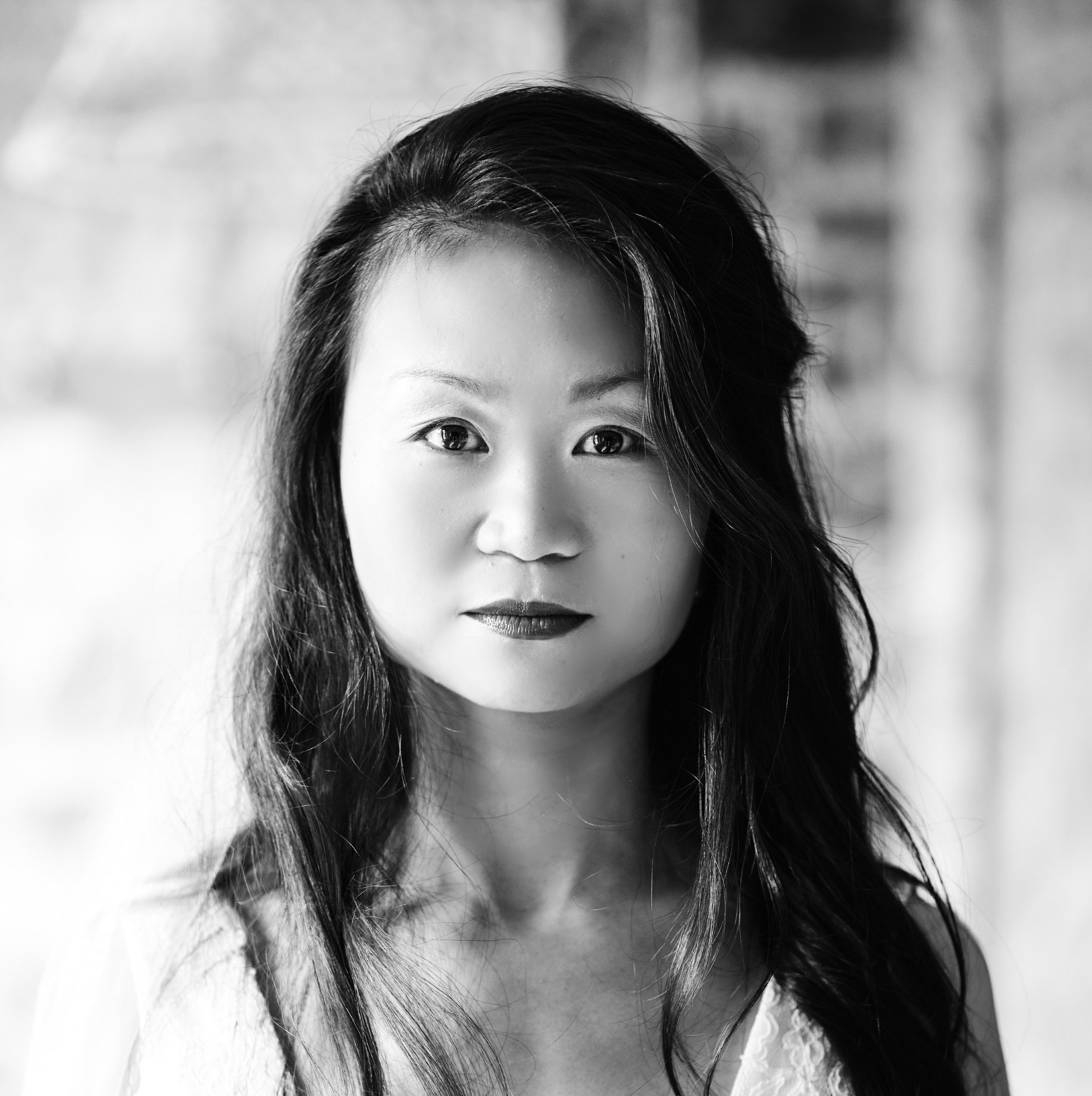
Nasim Lootij
Choreographer, performer and teacher, Nasim Lootij began to dance in Iran, where her art was banned following a religious revolution in 1979. After practicing traditional Iranian dances in the underground courts of Tehran, she settled down in Paris in 2006. For eight years, she studied contemporary dance there at the University of Paris 8, at the RIDC, at the Jean Wiener Conservatory and she specialized in Laban Notation and at the CNSMDP. She collaborated there with Odile Duboc, Christine Gérard, Natalie Pernette, Dominique Dupuy and Nawel Oulad and created two pieces: Lalaï (2012) and Bouyé Jouyé Moulian (2015). In 2014, she moved to Montreal where she created the solo Moi-Me-Man (2017) in collaboration with Kiasa Nazeran, the playwright with whom she has worked for 9 years and co-founded the Vâtchik Danse collective in 2019. This year, Nasim benefited from the dem-Art mtl program of the Conseil des Arts de Montréal in collaboration with Fondation Jean-Pierre Perrault, Compagnie Flak and Tangente to co-create La Chute.
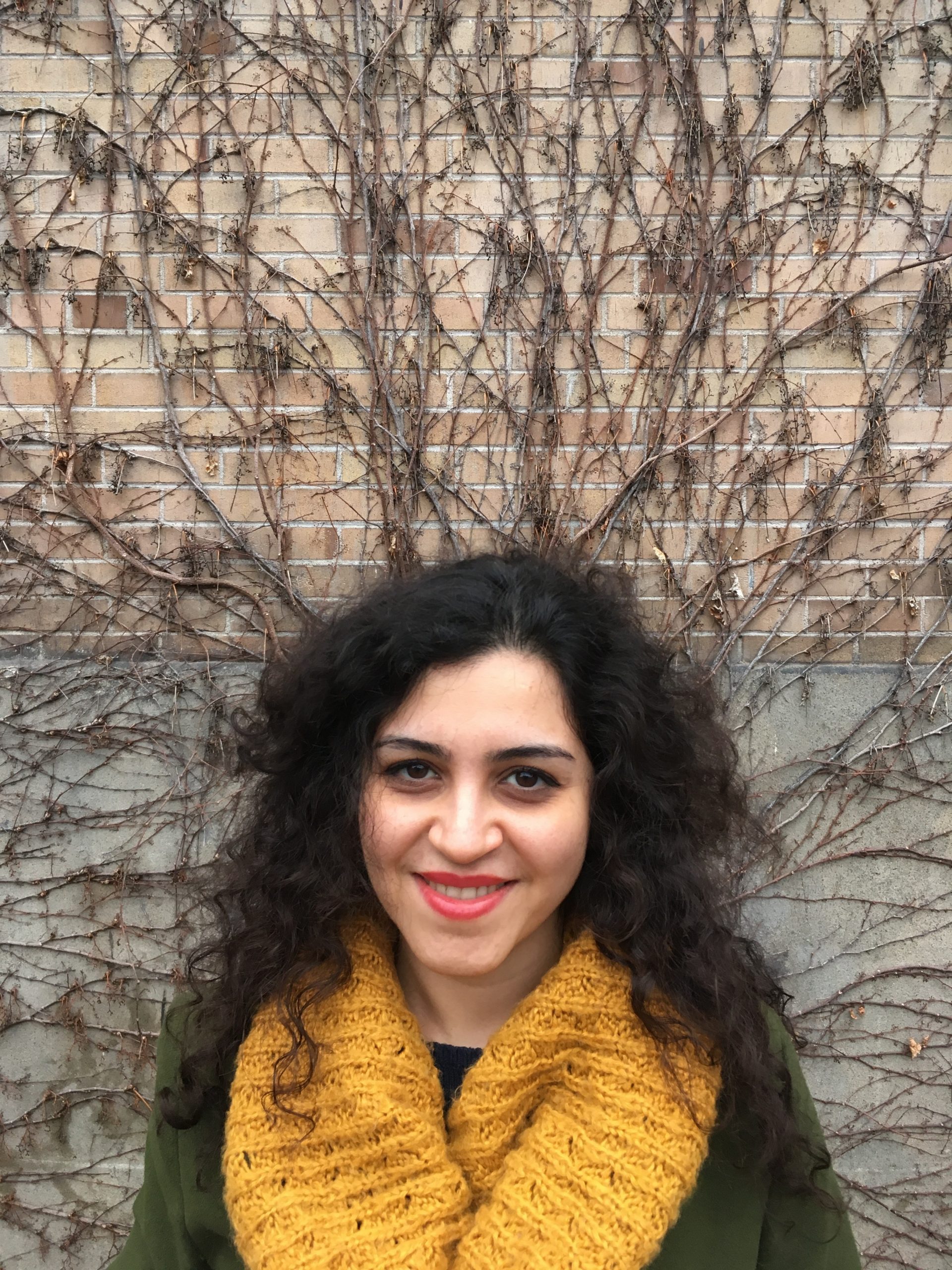
Kiasa Nazeran
Researcher, director, mime and playwright, Kiasa Nazeran began his career in Iran as a translator of plays. After studying and working professionally as a director and actor in Iran, he moved to Paris in 2009 where he attended the Jacques Lecoq School and the European Academy of Body Theater of Ella Jaroszewics. Then, he completed a master’s degree in theater studies at the University of Sorbonne Nouvelle where he has been teaching since 2014. Currently he is writing a doctoral thesis at the University of Franche-Comté on the history of organicity in the work of European actor from Stanislavski to Grotowski under the direction of Guy Freixe and in collaboration with Odin Théâtre (Eugénio Barba / Denmark) and the Théâtre du Mouvement (Claire Heggen / Paris). For 9 years, he has collaborated with Nasim as a playwright and co-founded with her the Vâtchik Danse collective in 2019.
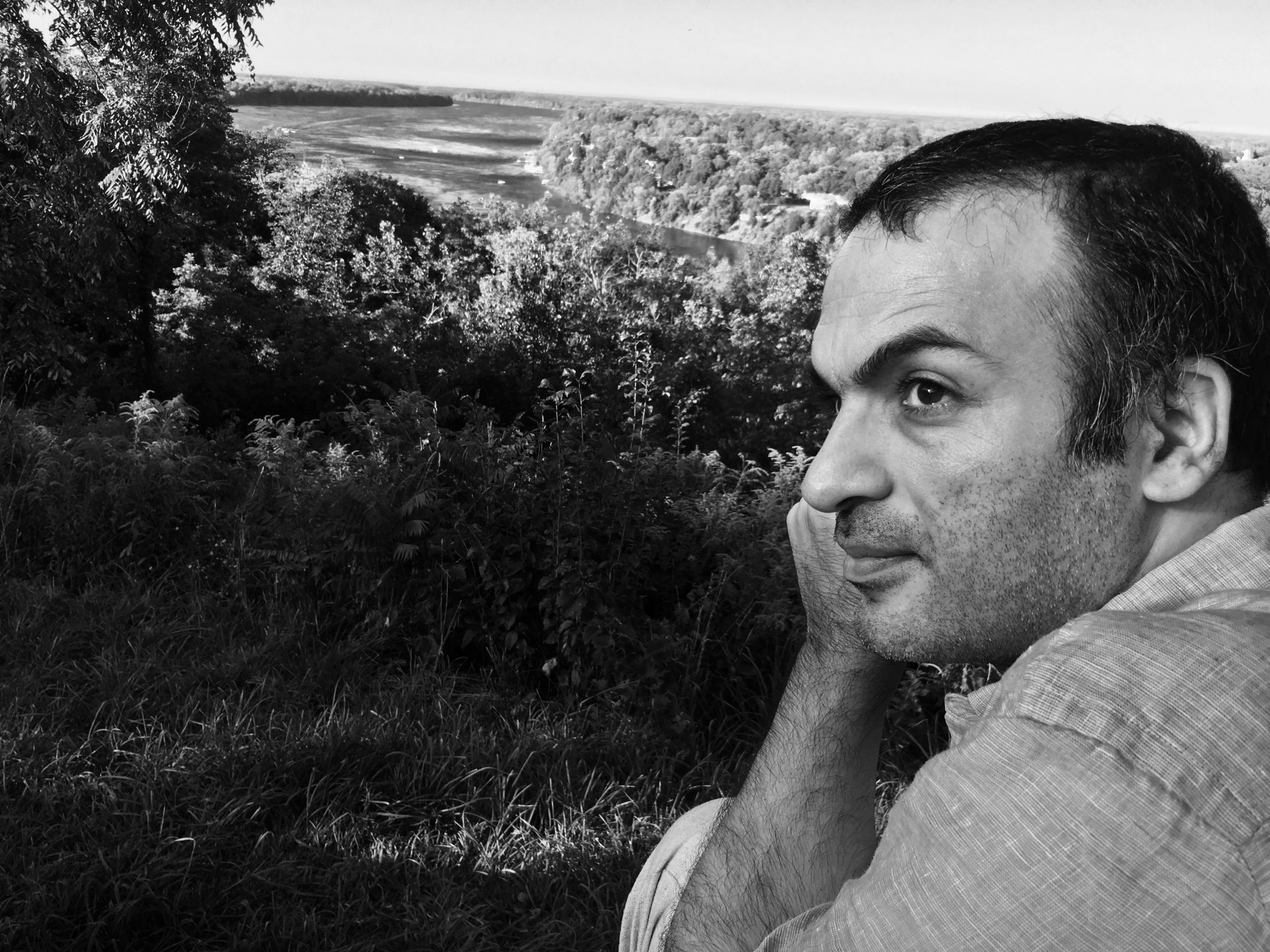
Ensemble Zaman
Ensemble Zaman presents an instrumental and vocal repertoire that spans the music of Middle Eastern and Ottoman traditions. Evoking the notion of time, Zaman (نامز) also means the past. Inspired by the passion that is expressed at the heart of these rare pieces composed between the 15th and 19th centuries, the Ensemble seeks to transmit these musical lights of the Levant – a region which covered Greater Syria, Egypt and Turkey. Since 2014, Ensemble Zaman has been traveling between the Maisons de la Culture in Montreal and Festival Accès Asie, Maison de la Syrie, Festival du Monde Arabe, Festival des Traditions du monde de Sherbrooke, etc. At the same time, the group is involved in fundraising concerts to support organizations in which it believes (Amnesty International, Syrian Kids Foundation and the Ministry of Immigration).
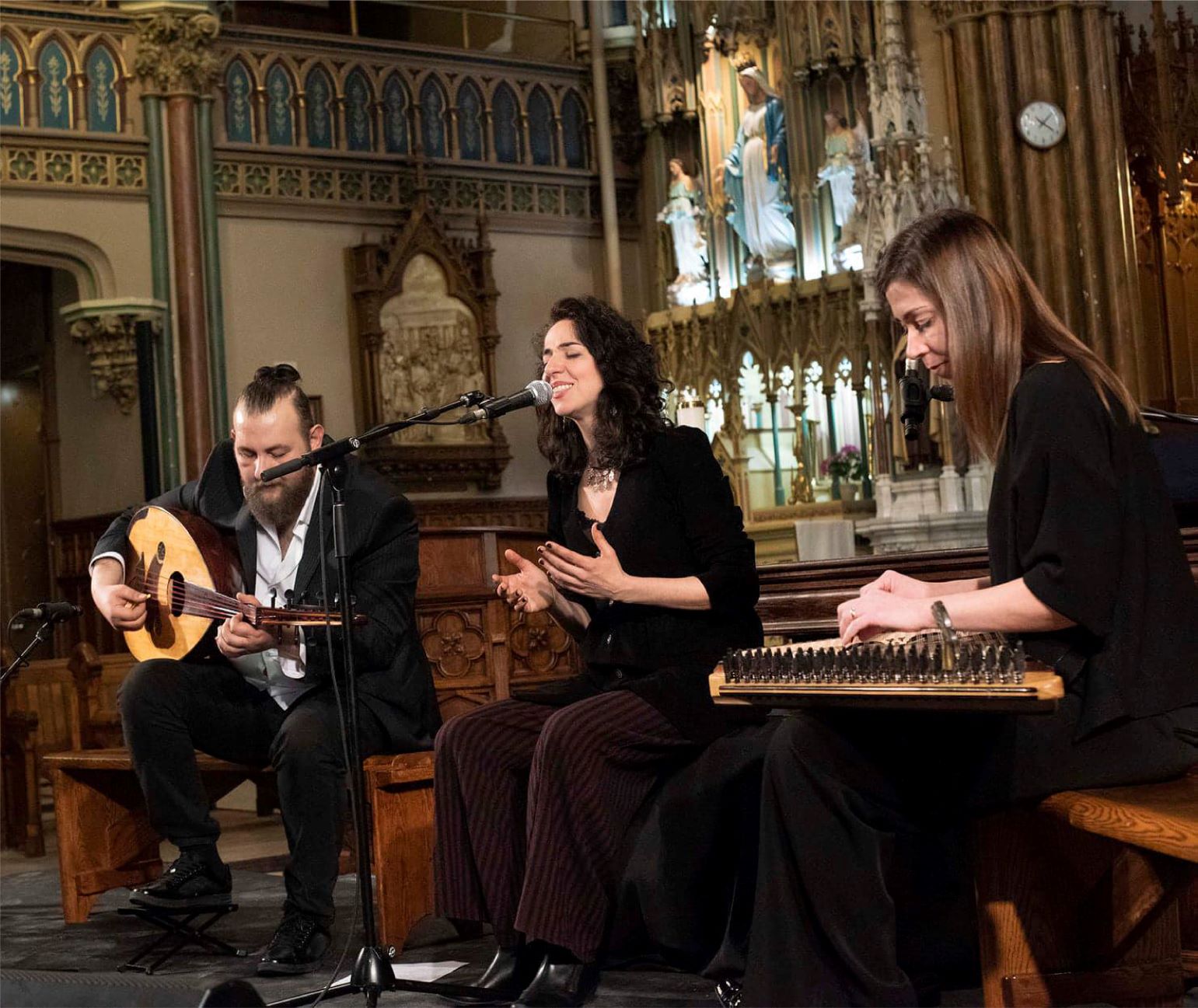
With
Parisa Rajabian – Visual artist
Hanieh Ziaei – Curator
Geneviève Duong – Choreographer and performer
Charo Foo Tai Wei – Choreographer and performer
Nasim Lootij – Choreographer and performer
Kiasa Nazeran – Dramaturge
Ensemble Zaman – Middle Eastern Music

